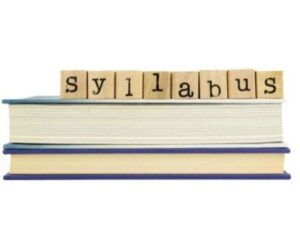 |
Tidbit – How to Make the Most of an Academic ConferenceIt is exciting to see colleagues return to their academic meetings. While we are not at pre-pandemic levels, the number of “sorry, away at a conference” email responses I get has increased significantly. Have an upcoming conference? This easy-to-skim Chronicle article, How to Make the Most of an Academic Conference, gives some great advice on how to make your meetings productive. |
Tidbits
Something that may be of interest
Tidbit- Four Classroom Lessons From Haunted Houses
 |
Tidbit – Four Classroom Lessons From Haunted HousesDo you like haunted houses? Dr. Sarah Rose Cavanagh shares four lessons we can take from “recreational fear” – the fun of being scared – to promote learning in our classrooms. |
Tidbit – To cold call or not?

Do you cold call students in your classroom? I’ve seen colleagues use this technique to significant effect. I’ve seen others try it with lesser impact. I must admit I did not have the courage for this practice. After reading the article The Question of ‘Cold Calling,’ I may try it. But the piece made me realize that it will take forethought and trust to make this delicate tool effective.
Cognitive Goals for Classes: Academic Mindset

Teachers can cultivate an academic mindset that promotes student motivation toward deep learning and resilience in the face of setbacks and challenges. Student mental mindset refers to the attitudes and beliefs that the student has about the course. This short article by our friend, Stephen Chew, outlines four essential student beliefs for a productive academic mindset that we can help build in our students.
The first day of class

I already had my first day of anxiety dream – teaching a new class in my high school classroom, notes were incomplete, and Dr. Matt Neal was there to observe me!
No matter how many times we’ve taught, we all experience some angst about that first class. To help me focus, I always reflect on Lang’s How to Teach a Good First Day of Class which lays out four fundamental principles to follow:
- Curiosity
- Community
- Learning
- Expectations
So whether this is your first semester at Denison or your fifteenth, give this easy-to-scan article a look for some final tips before your first class.
The syllabus is in their hands. Now what?

Whether you’ve had your first day of class or not, I always struggle with what to do with the syllabus this time of year. I want the students to use it, but I don’t want to spend valuable class time reading it to them. Find concrete ideas for how to engage students in your syllabus with the Higher Ed article, Starting off right with the syllabus.
Tilt 2.0
16 Denison faculty members participated in the Center’s TILT workshop in January. TILT stands for Transparency in Learning and Teaching, which provides a simple three-step structure: purpose, task, and criteria.
Maybe you were curious about the idea, but you were too busy, had a schedule conflict, or life got in the way. Dr. Anabel Stoeckle from the Office for Teaching & Learning at Wayne State University developed a TILT 2.0 version for all of us too busy to rework our assignments.
5 Ways to Be Strategic About Service
From Matt Kretchmar and your Selections and Elections Committee: This timely Chronicle article reminds us of the importance of giving ourselves to the broader mission of the college through our service work. The article reminds us that the best and most rewarding work is that which speaks to our hearts and connects with our talents. This is a good article to review before engaging with the upcoming governance ballot.
Tidbit – Writing your first grant by Meg Galipault
As the authors note right off the bat in this recommended article, “Writing Your First Grant,” grant writing can be intimidating. The good news is you’re not all on your own. Denison’s Office of Foundation & Corporate Relations (FCR) is here to help.
New professors might be used to working with a “sponsored program office” or a “research office.”
Tidbit – Trapped in the Quagmire of Digital Recommendation Letters
It’s that time of year. Students are looking for summer opportunities, trying to land that first job, or contemplating graduate school. Yes, recommendation letter writing season is in full swing! A recent Chronicle article bemoans how the digital age has ruined this process.
Never fear! Recall, the Lisska Center has created this video to provide you with suggestions on writing letters of recommendation, including things to focus on and what to ask of students.
